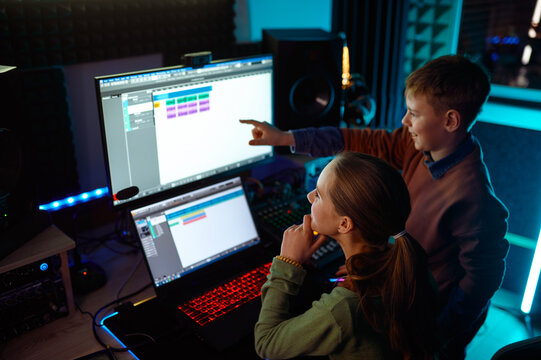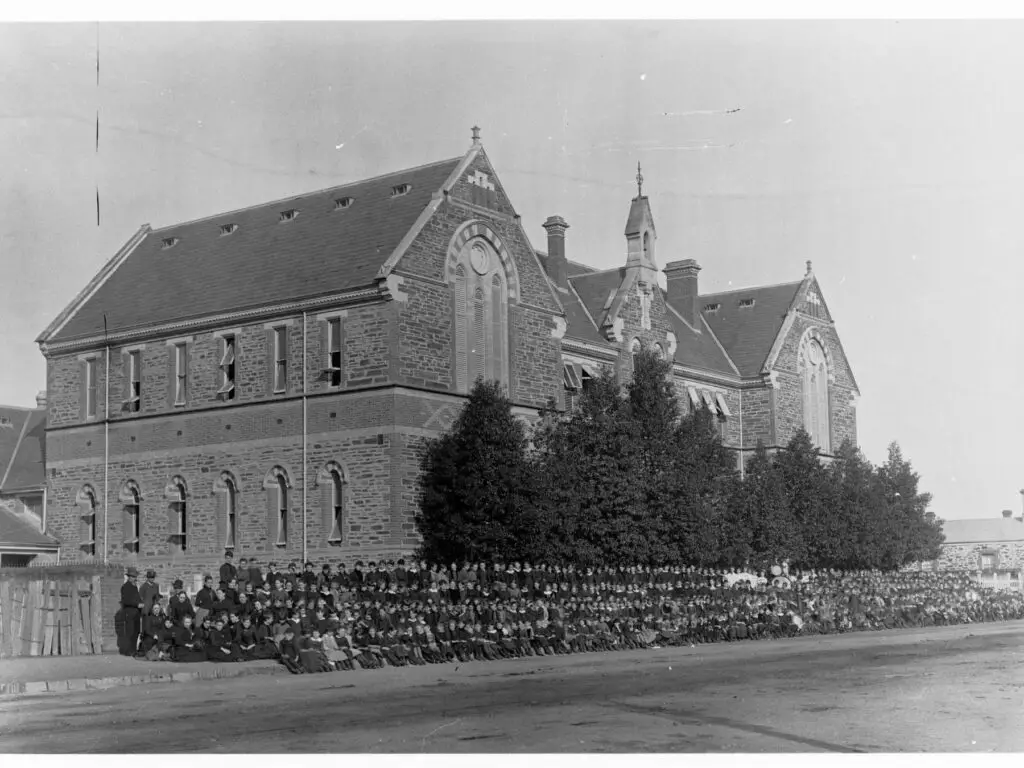Are you looking for high school music programs that specialize in music production? Look no further! This article will provide an in-depth guide on music production programs for high school students. We’ll cover everything from the benefits of music production classes and programs to the equipment and technology used in these courses. By the end of this article, you’ll have all of the information you need to get started in a music production program in high school and prepare for a successful career in the music industry.
Table of Contents

Benefits of Music Production Programs in High School
Music production programs in high school provide numerous benefits for students interested in music. These programs offer a unique opportunity to enhance creativity and critical thinking skills through music production projects. Music production programs are designed to provide students with the necessary skills and knowledge needed to pursue a career in music production. Here are some benefits of music production programs in high school:
Enhancing creativity and critical thinking skills through music production
Music production programs in high school allow students to explore their creativity and develop their critical thinking skills through music production projects. These programs encourage students to experiment with different styles and genres of music, learn new technologies, and collaborate with others. Music production programs challenge students to think critically and solve problems creatively, which are skills that can be applied in various fields.
Preparing high school students for college and career opportunities in music production
Music production programs in high school provide students with a solid foundation in music production, which can prepare them for college and career opportunities in the music industry. Students can gain hands-on experience and learn industry-standard techniques and software, which can be valuable assets when applying for college or jobs in the field.
Building teamwork and communication skills through music production projects
Music production programs in high school encourage students to work collaboratively on music production projects. These programs provide opportunities for students to work in teams, communicate effectively, and build relationships with their peers. These teamwork and communication skills are valuable in any profession and can be applied in various fields beyond music.
Music production programs in high school provide students with a unique opportunity to explore their passion for music while developing valuable skills that can be applied in various fields.

Music Production Classes for High School Students
Music production classes are an essential component of high school music education that aim to teach students the fundamentals of music production, including music theory, audio engineering, and music software applications. These classes provide a hands-on learning experience for students, allowing them to explore their creativity and develop their skills in music production.
Overview of Music Production Classes for High School Students
Music production classes for high school students are designed to provide a comprehensive understanding of music production and audio engineering. These classes cover topics such as music theory, digital audio workstations, signal processing, and music software applications such as Logic Pro and Ableton. Students learn and apply these concepts through various projects and assignments.
Curriculum and Course Requirements for Music Production Classes
The curriculum of music production classes typically includes music theory, audio engineering, and music software applications. Students are required to complete assignments and projects that demonstrate their understanding of the concepts covered in class. The course requirements may vary depending on the school and program, but students are expected to have a basic understanding of music theory and computer skills.
Equipment and Technology Used in Music Production Classes for High School Students
Music production classes utilize a range of equipment and technology to teach students the basics of music production. Students may work with digital audio workstations, mixers, microphones, and other hardware and software tools to create their music productions. The equipment used may vary depending on the school and program, but students have access to industry-standard tools that prepare them for future music production work.

High School Music Production Programs
High school music production programs offer a comprehensive music education experience that goes beyond traditional music production classes. These programs include music theory, audio engineering, and performance opportunities for students to explore their creativity.
Overview of High School Music Production Programs
High school music production programs are designed to provide a well-rounded music education that encompasses various aspects of music production. Students learn the technical skills of music production, music theory, and performance techniques. High school music production programs offer a comprehensive music education experience that goes beyond traditional music production classes.
Types of High School Music Production Programs Available
High school music production programs are available in different forms such as after-school programs, summer camps, and specialized music schools. Each program offers a unique approach to music production education and provides students with different opportunities to explore their creativity. For instance, after-school programs offer students the chance to engage in music production activities outside of regular school hours. Summer camps provide an intensive music production experience that allows students to hone their skills in a short period of time. Specialized music schools offer a more in-depth and immersive education experience in music production.
Faculty and Staff Qualifications for High School Music Production Programs
High school music production programs are typically taught by experienced music educators and industry professionals who have a strong background in music theory, audio engineering, and music production. Teachers in these programs provide students with the knowledge and skills they need to succeed in the music industry. They also offer guidance and mentorship to help students build their passion for music production.
Examples of High Schools with Outstanding Music Production Programs
Some high schools that offer outstanding music production programs include the Los Angeles County High School for the Arts, the Interlochen Arts Academy, and the Berklee College of Music High School Summer Program. These schools offer a comprehensive music education experience that provides students with a strong foundation in music production, audio engineering, and music theory. Students also have the opportunity to collaborate with other musicians and industry professionals to build their music production skills.

Music Technology Courses for High Schoolers
Music technology courses are a great way for high school students to learn how to use technology in music production and performance. These courses teach students how to use music software applications and digital audio workstations to create and produce music.
Overview of Music Technology Courses for High School Students
Music technology courses are designed to teach students the basics of music production using technology tools. Students learn how to use music software applications and digital audio workstations to create and produce music. They also learn about music composition, arrangement, and sound design. These courses are intended for students who are interested in pursuing a career in music production or who simply want to learn more about music technology.
Curriculum and Course Requirements for Music Technology Courses
The curriculum for music technology courses typically includes hands-on training in music software applications, digital audio workstations, and other technology tools used in music production and performance. Students are required to complete assignments and projects that demonstrate their understanding of the concepts covered in class.
Music technology courses cover topics such as music theory, MIDI sequencing, audio recording, mixing, mastering, and sound design. Students also learn about different music genres and the role of technology in creating and producing music.
Equipment and Technology Used in Music Technology Courses for High School Students
Music technology courses typically use a combination of hardware and software to teach students the basics of music production. Students may work with digital audio workstations such as Logic Pro, Ableton Live, or Pro Tools, as well as other hardware such as MIDI controllers, mixers, and microphones.
In addition to music production tools, students may also use music notation software, ear training software, and music theory software to enhance their skills and understanding of music technology. By the end of the course, students will have gained valuable experience using technology tools to create and produce music, setting them on a path towards a career in music production or related fields.

Best High Schools for Music Production
There are many high schools across the country that offer exceptional music production programs for high school students. These schools provide students with a comprehensive music education experience that prepares them for college and career opportunities in the music industry.
Overview of the Best High Schools for Music Production
The best high schools for music production offer a comprehensive music education experience that includes music theory, audio engineering, and performance opportunities. These schools have experienced faculty and staff who are able to provide students with the knowledge and skills they need to succeed in the music industry.
Music production programs in high schools should offer a variety of music courses, workshops, and projects. These programs should also provide students with opportunities to learn how to use industry-standard audio equipment and software tools. The best high schools for music production programs have instructors who are specialized in music production and audio engineering, and are able to provide hands-on support to their students.
Criteria Used to Rank High Schools for Music Production Programs
High schools are ranked based on a variety of factors, including the quality of their music production programs, the experience and qualifications of their faculty and staff, and the opportunities they provide for students to perform and showcase their work. Some of the common criteria used to rank high schools for music production programs include:
- The quality of the music production curriculum and course offerings
- The availability and use of industry-standard equipment and software tools
- The number of performance opportunities available to students, such as concerts, recitals, and competitions
- The success of alumni in the music industry, including the number of graduates who go on to pursue music production careers or attend top music production schools
When researching the best high schools for music production programs, it’s important to consider each school’s unique offerings and strengths, as well as the resources available to students, such as recording studios, practice rooms, and performance spaces.

How to Succeed in a Music Production Program in High School
To succeed in a music production program in high school, dedication, hard work, and a willingness to learn are necessary. However, there are other steps that students can take to maximize their chances of success.
Building a Portfolio and Networking with Industry Professionals
Students who want to pursue a career in music production should focus on building a strong portfolio of work and networking with industry professionals. They should take advantage of any opportunities to perform or showcase their work, such as music festivals and contests. Additionally, they should seek out mentors who can provide guidance and advice on their work, and build relationships with other professionals in the industry.
Preparing for College and Career Opportunities in Music Production
Students who want to pursue a career in music production should start preparing early by taking music production classes and participating in music production programs in high school. They should also research colleges and universities that offer music production programs and begin building a portfolio of work that demonstrates their skills and abilities. Another important aspect of preparing for college and career opportunities is gaining real-world experience through internships or volunteering with organizations in the music production industry.
By following these steps, students can position themselves for success in a music production program in high school and beyond.
Conclusion
In conclusion, high school music production programs are an excellent way for students to develop their creativity, critical thinking skills, and prepare for future opportunities in the music industry. These programs offer a range of benefits, including building teamwork and communication skills through collaborative projects, and exposure to the latest music technology and equipment. Whether students want to pursue a career in music production or simply want to develop their skills and knowledge in this area, they will find that high school music production programs offer many options to help them achieve their goals.
We encourage high school students who are interested in music production to explore the various music production programs and technology courses available to them. It’s important to research the different programs and courses to find the best fit for their personal goals and interests. By networking with industry professionals and building a portfolio of their work, they can prepare for future opportunities in college or the music industry.
Don’t miss out on other helpful content related to music education and production. Check out our website for more articles and resources that can help you on your journey.

